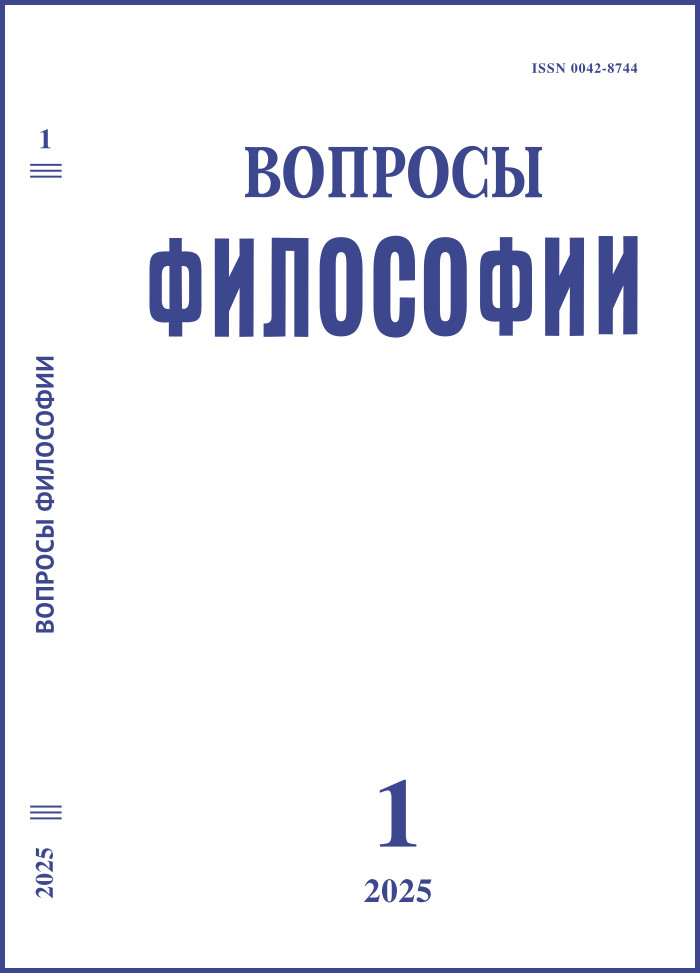The Silver Age between Creative Experiment and Revelation: an Aesthetic Treatise by Nikolai Evreinov
DOI:
https://doi.org/10.21146/0042-8744-2025-1-140-151Keywords:
Nikolay Evreinov, The Silver Age, aesthetic searches, artistic experiment, theatrical tradition, philosophy of art, revelationAbstract
This article is devoted to the aesthetic heritage of Nikolai N. Evreinov, his search for new forms of artistic expression and the meaning of art in the culture of the Silver Age. The article discusses the syncretic origins of N. Evreinov’s theatrical and theoretical aesthetics, it reveals the commonality of his creative search with the intellectual processes of Russian and European modernist culture. The author focuses on N.N. Evreinov’s late theoretical treatise “The Revelation of Art”. The philosophical analysis of the treatise makes it possible to actualize the earlier experiences of the theater director’s work in the context of the theory and practice of artistic modernism. The author of article puts forward a thesis about the genetic relationship of N. Evreinov’s artistic ideas with various philosophical trends of Russian and European culture at the turn of the 19th–20th centuries, as well as about the interrelation of his aesthetic
theory with the philosophical concepts of Z. Freud, K. Jung, A. Bergson, N. Fyodorov, Vyach. Ivanov, A. Bely, N. Berdyaev, S. Frank. The main themes of the treatise are analyzed from the point of view of the general logic of the formation of Evreinov’s philosophical and aesthetic system. The article conceptualizes the philosophical dictionary and the concepts of “art” and “revelation”, which form the theoretical framework of N. Evreinov’s treatise. The author traces the line of succession between pre-revolutionary artistic experiences and the emigrant period of N. Evreinov’s work and assesses the influence of existential thought on his ideas about human creativity. She reveals the philosophical-anthropological and metaphysical aspects of the treatise and proposes to interpret it as an intellectual phenomenon of Russian modernism, which opens up the possibility for a creative person to both artistic experiment and sacralization the aesthetic in the art practice. This approach allows us to trace the evolution of the N. Evreinov’s early idea of theatricalization of life and to determine the ways of its aesthetic theorization in the context of the philosophical culture of Russia and Europe in the first third of the 20th century.

